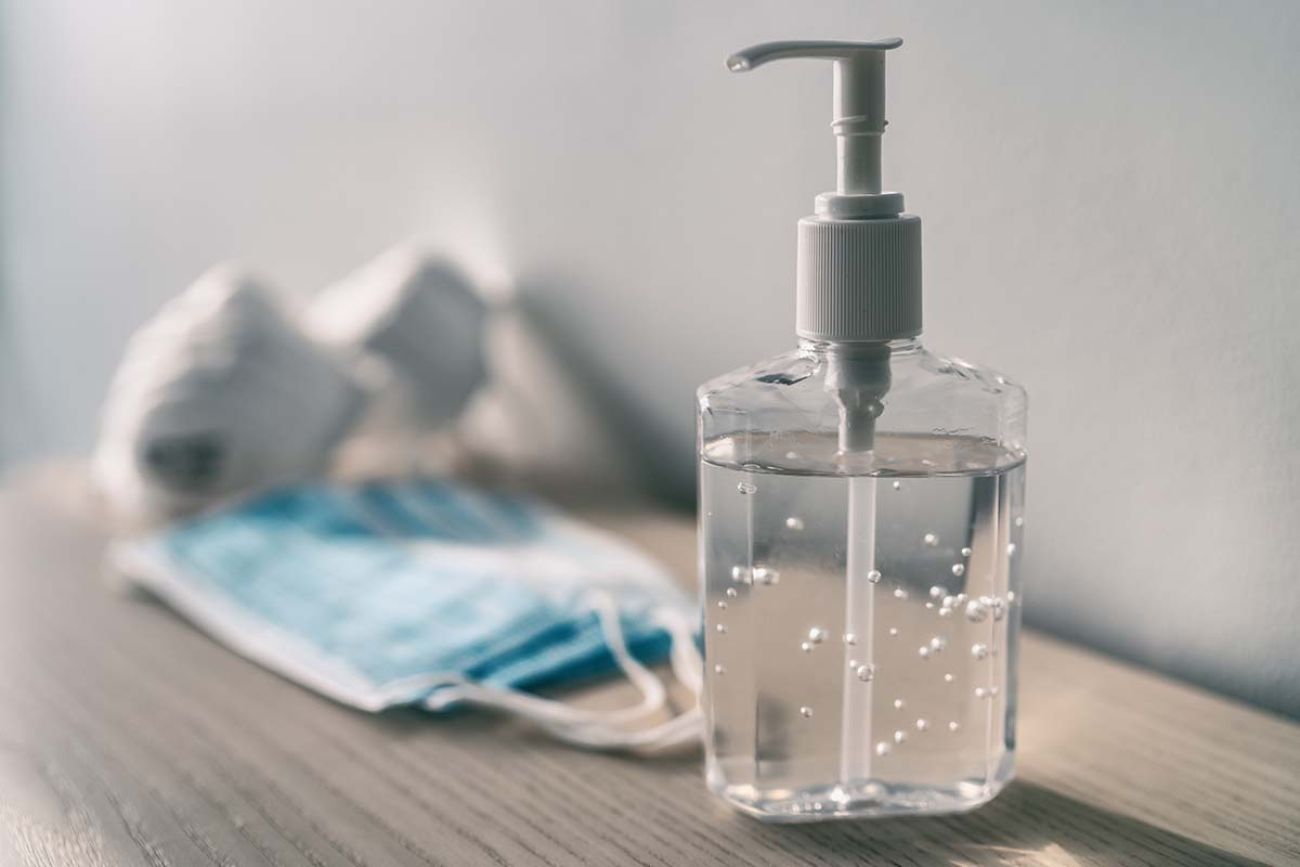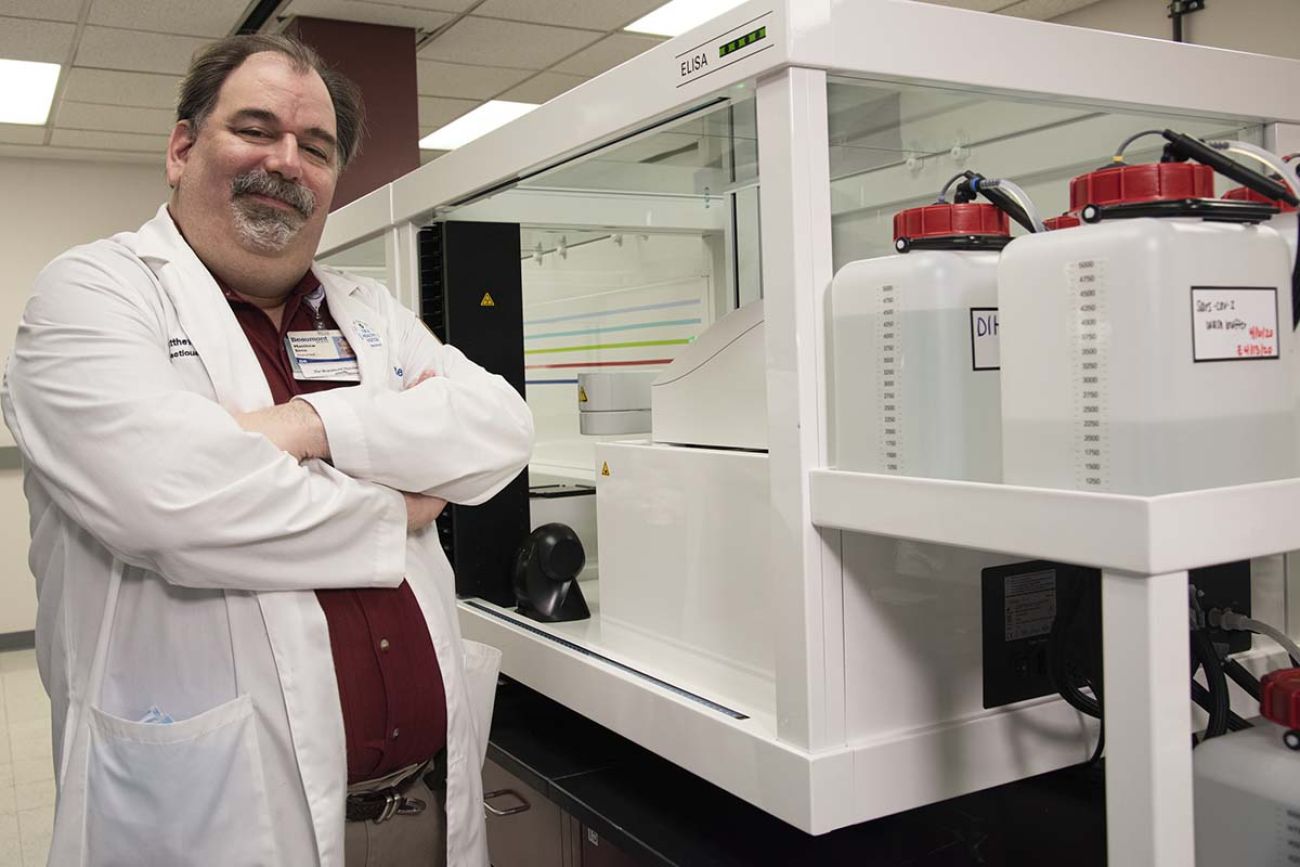COVID is up again in Michigan. Good luck finding more info (or free tests)

- COVID cases have doubled in the past month in Michigan
- The disease behaves like a common cold for most, but older adults and those with compromised immune systems are at higher risk
- Free tests are hard to find and some are debating whether testing at all is necessary
Dr. Matthew Sims knows COVID is sickening folks in southeast Michigan at a greater rate these days.
Four of his medical colleagues in the past few weeks have been infected with COVID in the past weeks. The infectious disease doctor saw three patients on his last rounds at Corewell Health’s Royal Oak hospital earlier this month, too: an “incidental” case of a patient getting surgery who also happened to be COVID-positive, and two others who were ill from COVID.
National cases are increasing as well, as evidenced by President Joe Biden’s infection last week.
Beyond those generalities, though, it’s hard to get a better understanding of the virus’ spread and severity because Michigan in May stopped keeping data on COVID hospitalizations. (Editor’s note: The decision prompted Bridge Michigan to end its weekly COVID Tracker)
Likewise, state case counts are far less precise because they only include infections confirmed by labs. Most people test at home.
Officially, then, reported cases doubled to 1,925 on July eight from four weeks earlier. That’s higher than this time last year, but a fraction of even the winter. Deaths remain at very low levels.
With the exception of older and more sickly Michiganders who are more susceptible to greater damage from COVID, we’ve “pretty much gotten to the point where it’s just part of our normal lives,” Sims said.
And with a growing immunity to its most serious complications, “there are a lot of people who are getting COVID but don't know it. It’s just a common cold to them,” he said.
What do we know about COVID cases now?
The number of reported weekly cases has risen for each of the past seven weeks and triple the number reported in late May.
Nationally, the virus is being detected at wastewater sites at higher levels, with the west and south hit the hardest. But sites monitored across Michigan, so far, have noted “moderate” levels of the virus.
Isn’t it just a cold? (No.)
As more people have multiple contacts with the virus or the vaccine that prevents its most serious complications, a COVID infection becomes more of a nuisance for most healthy people — a stuffy nose, for example.
Several staff at Michigan’s District Health Department #10, which serves ten northwest Michigan counties, recently tested positive for COVID, said its health officer, Kevin Hughes.
He said he’s heard recently about more cases in the community, too.
Related:
- CDC drops most COVID-19 isolation guidelines. What it means in Michigan
- Bridge Michigan launches Elections Tracker, ends COVID Tracker
“For the people who are positive, the illness isn’t really severe,” said Hughes, who also is president of the Michigan Association for Local Public Health.
Older Michiganders and those with compromised immune systems and serious chronic conditions are still very much at risk, Sims said.
While those 70 or older comprise nearly 68% of all Michigan COVID-19 deaths since 2023, they make up 72% of the 1,284 reported COVID-19 deaths in 2024.
Those who are 80 or older make up 48% of the 2024 deaths, up from 42% from 2020-2023.
Should I test if I’m sick?
It depends, Sims said, and the hard-and-fast rules of early COVID are long gone.
Sims recommends testing if you have a fever or difficulty breathing. Knowing you’re COVID-positive can help you stop its spread if you mask and stay away from older people and those with health problems that can make them vulnerable to the virus’ most severe complications.

Health experts say treatments against COVID infections work only when started within five to seven days of an infection. (An online tool here can help you learn about treatments and find them if you don’t have a regular doctor.)
But Sims also has seasonal allergies.
“If I tested every time I was stuffy, I’d be testing three or four times a week,” he said.
And if you’re a remote worker and very mildly, and you don’t have a lot of contact with people, it might not be necessary to test, especially as free tests are more difficult to find.
Where do I find tests?
The test sites and free tests in the early years of the pandemic are now fewer and farther between, and the state’s COVID hotline was closed June 30, according to a recording.
With the end of the public health emergency, insurers no longer are required to cover the costs of at-home tests. The federal program to ship free at-home tests to mailboxes also has ended.
Still, the Michigan Department of Health and Human Services on Monday was updating its COVID testing webpage to reflect a shift in dozens of former test sites into 22 Neighborhood Wellness Centers, which provide other basic health screenings in addition to COVID tests.
The state health department also continues to provide free at-home tests through a partnership with local libraries.
Through a federal program, Michiganders without insurance may still receive testing at sites throughout the state. A searchable, online tool is here.
If I test positive?
The long quarantine and isolation periods of early COVID are long gone, but there are still precautions.
“The fact is it hasn’t really changed. There aren’t a lot of restrictions,” said Susan Ringler-Cerniglia, spokesperson for the Washtenaw County Health Department, where its limited data is showing a slight increase in cases.
The goal: try your best not to spread it, she said.
Those who are COVID-positive no longer need to skip school or work if they are fever-free for 24 hours and feeling better, according to guidelines the U.S. Centers for Disease Control and Prevention updated in March.
That aligned the recommendations to guidelines for other respiratory infections, such as flu or respiratory syncytial virus (RSV).
In short: Resume normal activities when — for at least 24 hours — your symptoms are better overall and you are fever-free without medicine.
At District Health Department #10, employees were asked to stay home until they were fever-free — without fever-reducing medications — for at least 24 hours, Hughes said.
When they returned to work, they were to wear a mask for five days, he said.
That follows CDC’s recommendations.
The agency suggests taking steps for cleaner air, stepping up hand hygiene, wearing masks, paying attention to physical distancing, and/or testing when you will be around other people indoors.
See what new members are saying about why they donated to Bridge Michigan:
- “In order for this information to be accurate and unbiased it must be underwritten by its readers, not by special interests.” - Larry S.
- “Not many other media sources report on the topics Bridge does.” - Susan B.
- “Your journalism is outstanding and rare these days.” - Mark S.
If you want to ensure the future of nonpartisan, nonprofit Michigan journalism, please become a member today. You, too, will be asked why you donated and maybe we'll feature your quote next time!








